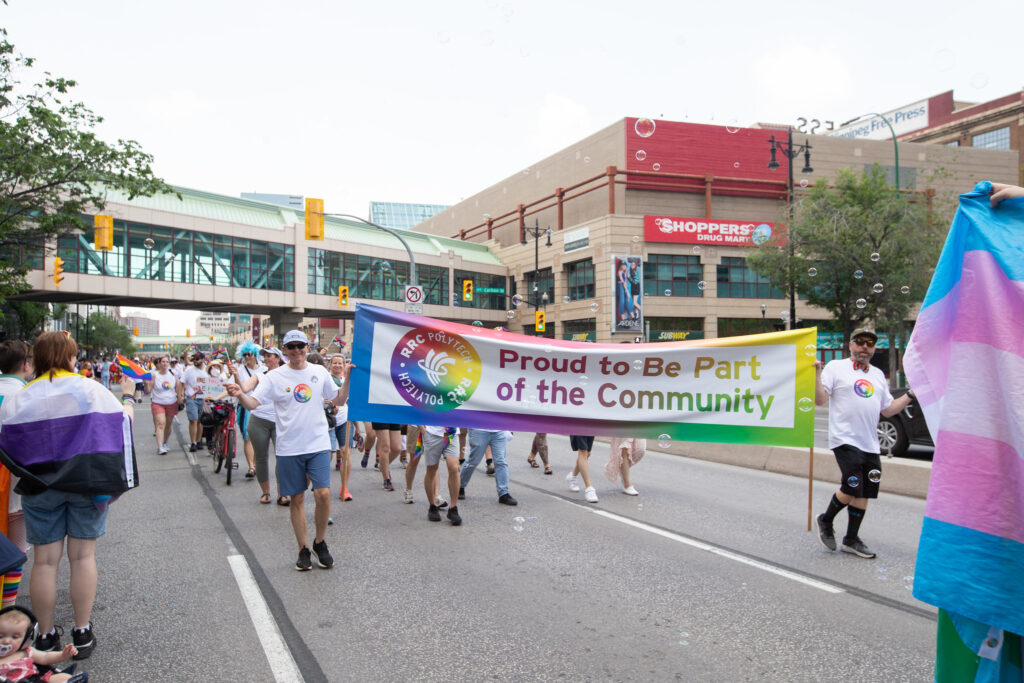International Day Against Homophobia, Transphobia, and Biphobia
Post written by Dr Obren Amiesimaka and Justine Hawley, Gender and Sexual Diversity Group Members at RRC Polytech.
The International Day Against Homophobia, Transphobia, and Biphobia (IDAHOBIT) is marked every May 17. Homophobia, Biphobia and Transphobia are probably words you’ve heard before. They refer to the “fear, dislike, or hatred of and discrimination against 2SLGBTQIA+ people”(Canadian Centre for Diversity and Inclusion’s Glossary of Terms) because of their gender identity and/or sexual orientation.
Derogatory language, violence and various forms of discrimination, at work or in the law/education/life generally, are few examples of homophobia, transphobia, and biphobia. These acts of discrimination can be subtle, but they don’t have to be overt to negatively impact 2SLGBTQIA+ folk. Sadly, many members of the 2SLGBTQIA+ community in Canada and around the world still face discrimination due to homophobia, transphobia and biphobia. We should not be complicit by letting these hateful actions occur without repercussions or anyone standing up.
The theme for this year’s International Day Against Homophobia, Transphobia, and Biphobia is “No One Left Behind: Equality, Freedom and Justice for All”. At RRC Polytech, we are committed to pursuing equity, diversity and inclusion in everything we do, and this is embedded in our Strategic Plan. We strive to be allies, show kindness to, and respect the dignity of everyone, no matter who they are and who they love.
Think about how you can be a 2SLGBTQIA+ ally and stand against homophobia, transphobia, and biphobia this May 17 and always.
- What is IDAHOBIT (International Day Against Homophobia, Transphobia, and Biphobia)?
- Being a 2SLGBTQIA+ Ally
- Allyship is leadership
- How to be an Ally to a Bi+ Person
- What Does Trans Allyship Look Like?
- Join the Gender and Sexual Diversity Working Group at RRC Polytech
- CCDI’s Glossary of Terms
- Homophobia: a fear, dislike, or hatred of and discrimination against 2SLGBTQIA+ people. Homophobia presents in many forms, and can be structural/systemic, interpersonal, or internalized.
- Transphobia is the fear, dislike, or hatred of and discrimination against trans people. Transphobia exists through offensive jokes, exclusion, denial of services, employment discrimination, intentional misgendering, harassment, and violence.
- Biphobia: Fear, dislike, or hatred of and discrimination against bisexual people. Biphobia presents through offensive jokes, exclusion, bi-erasure, harassment, and violence. Biphobia exists both within and outside of the 2SLGBTQIA+ community.

